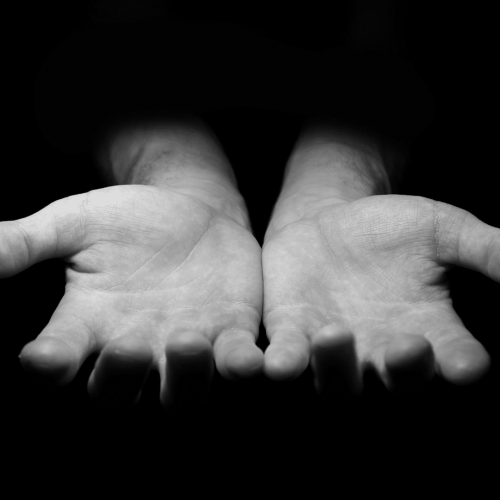Confidence before God
1 John 3:21-22. Beloved, if our heart does not condemn us, we have confidence before God; and whatever we ask we receive from Him, because we keep His commandments and do the things that are pleasing in His sight.
If our heart condemns us, we will not have confidence before God. Some are unable to receive God’s promises and blessings or effectively minister to others until they resolve their feelings of guilt and shame. We may hold a consciousness or worse, a subconscious feeling of unworthiness thereby harboring doubt of God’s willingness to fellowship with us or help us. A clear conscious is imperative for a healthy relationship with God our Father.
Paul’s behavior before his conversion, as the lead persecutor of the church, provided ample reason for condemnation, but instead, he believed in God’s grace, mercy, and forgiveness. Thusly, he had a good conscience before God as stated in Acts 23:1 – I have lived my life before God in all good conscience up to this day.” He apparently worked hard at having a clear conscience, according to Acts 24:16 – So I always take pains to have a clear conscience toward both God and man. To Timothy he wrote, “But the goal of our instruction is love from a pure heart and a good conscience and a sincere faith” (1 Tim 1:5). Paul encouraged Timothy to maintain a pure conscience and to instruct the elders that they must have a pure conscience (1 Tim 1:19 and 3:9).
Three common reasons why people struggle with their consciences are: 1) our evil lifestyle before Christianity still haunts us; 2) sins we currently commit; and 3) the subconscious influence of our ascetic religious background causes us to believe we are unworthy of God’s goodness.
Our evil lifestyle before Christianity still haunts us.
Paul was humble and never forgetful of the evil that was his before he accepted Christ. Jesus came to Paul while he was on his way to commit atrocities against the followers of Christ. His recollection of his past continually helped him to embrace God’s grace, mercy, and forgiveness. He did not allow his past to diminish faith, rather to enhance it. He fully accepted and boldly taught others about justification and forgiveness of sins that Jesus accomplished for humanity on the cross. He wrote to the Ephesians – In him [Christ] we have redemption through his blood, the forgiveness of our trespasses, according to the riches of his grace, (Eph 1:7). He had a clear conscious because of his faith in Christ. The devil, called “the accuser” tempts us to feel guilt for that which God has completely washed away with the blood of Jesus. We are a new creation in Christ, and the “old self”, according to God’s Word, is now dead.
Current sins wear down our confidence.
The Lord’s prayer informs us that the temptation to sin is a daily struggle and that forgiveness is readily available if we seek it. Romans 7; Galatians 5; and Ephesians 4 set forth the constant fight between our old and new natures. God is not surprised that we sin, nor does He hold it over our heads. Rather, He made provision for us to receive forgiveness and cleansing so we can have a clear conscious.
1 John 1:8-10. If we say that we have no sin, we are deceiving ourselves and the truth is not in us. If we confess our sins, He is faithful and righteous to forgive us our sins and to cleanse us from all unrighteousness. If we say that we have not sinned, we make Him a liar and His word is not in us.
The devil is called the Temper, Deceiver, and Accuser. He temps us to sin with deceiving enticements and afterward accuses us so that we feel guilt and condemnation. The latter feelings are just as sinful as the original sin. Indeed, sin should cause us to feel godly sorrow, which is also called mourning (2 Corinthians 7:8-9). However, we are not to wallow in guilt and shame.
After we confess our sins, we should accept forgiveness and immediately move on. 1 John 1:8-10 is the truth, so accept God’s merciful forgiveness and honor Him and Christ by refocusing your life to live godly. Do not fall into the temptation to feel sorry for yourself by rehashing your sin. Dwelling on darkness does not eliminate it; rather, light dispels darkness.
For those of us who struggle with habitual sin such as overeating, alcohol, drugs, lust, and so on, maintaining a pure conscience is more difficult. We should decide right now to do something different. Seek the supernatural intervention of our Lord, and ask a brother or sister to help you. Refuse to live in it! If what you have done thus far has not worked, do something different.
The religious effect of asceticism may influence us subconsciously.
Asceticism is a lifestyle characterized by abstinence from sensual pleasures, often for the purpose of pursuing spiritual goals. Ascetics typically adopt a frugal lifestyle by the renunciation of material possessions and physical pleasures. They also spend time fasting while concentrating on the practice of religion or reflection upon
spiritual matters.
Asceticism has been historically observed in many religious traditions, including Buddhism, Jainism, Hinduism, Islam, Christianity, and Judaism. Elijah and John the Baptist maintained a godly ascetic lifestyle. In the times of Jesus, there were three major religious groups–the Pharisees, Sadducees, and the Essenes. The latter were immersed in asceticism. Their priests practiced celibacy. It is believed the Essenes were responsible for the Dead Sea Scrolls.
The church fathers, Origen, Jerome, Ignatius, John Chrysostom, and Augustine maintained highly ascetic lives. The well-known Francis of Assisi and his followers practiced external acts of asceticism. The clergy of the largest religions today hold to varying degrees of asceticism. The Roman Catholic monks, priests, and nuns commit to vows of celibacy and poverty. Clergy are often viewed as the most spiritual in each religious group. The unspoken impression congregants gain is that denial of pleasures in the avoidance of sins is extremely difficult, undesirable, and impossible for the common man. Asceticism did seem to aid some to gain a greater spiritual life. However, over the years, these disciplines warped into the belief that suffering was the way to a spiritual lifestyle. Instead of believing that Christ suffered for our sins so that we need not suffer, his suffering became the lifestyle to mimic.
Colossians 2:18-23. Let no one disqualify you, insisting on asceticism and worship of angels, going on in detail about visions, puffed up without reason by his sensuous mind, and not holding fast to the Head, from whom the whole body, nourished and knit together through its joints and ligaments, grows with a growth that is from God. If with Christ you died to the elemental spirits of the world, why, as if you were still alive in the world, do you submit to regulations– “Do not handle, Do not taste, Do not touch” (referring to things that all perish as they are used)–according to human precepts and teachings? These have indeed an appearance of wisdom in promoting self-made religion and asceticism and severity to the body, but they are of no value in stopping the indulgence of
the flesh.
Extreme asceticism contributed greatly to the elimination of the supernatural in Christianity. It promoted the opposite of Jesus’ stated ministry recorded in Luke 4:18. The opposite is captivity rather than freedom, blindness replaced sight, and oppression freedom.
Roman Catholic churches have front and center Jesus still on the cross, and on the walls are the fictitious 14 stations of the cross, thereby placing images of suffering central rather than faith, hope, and love. Instead of Christ resurrected, ascended, and empowering believers with holy spirit, sin consciousness is communicated. Many Christians that emerge from these ascetic religions are sin-conscious and prone to guilt and shame that destroys confidence in God.
Condemnation causes us to lose confidence before God; however, with His help, we can embrace the truth stated in Romans.
Romans 8:1. Therefore there is now no condemnation for those who are in Christ Jesus.




0 Comments